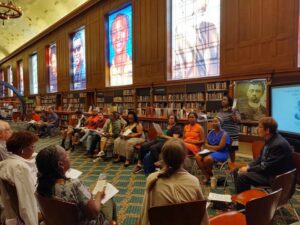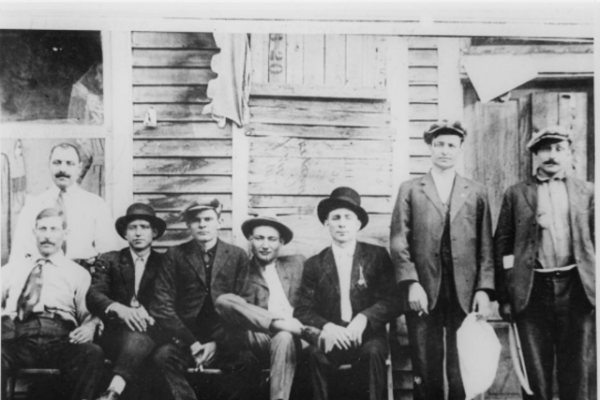
The year 2023 marks the 50th anniversary of the founding of the Frederick Douglass Papers, a research arm of the Institute for American Thought within the IU School of Liberal Arts. The project collects, edits, and publishes the speeches, correspondence, and writings of the iconic African American Frederick Douglass, a runaway Maryland slave who became an internationally renowned orator, writer, and reformer. The Douglass Papers was founded in 1973 at Yale University by Professor John W. Blasingame with financial support from the National Historical Publications and Records Commission, the National Endowment for the Humanities, and the Ford and Rockefeller Foundations. Since 1994, the Douglass papers has been headed by John R. Kaufman-McKivigan. In 1998, Kaufman-McKivigan accepted the position of Mary O’Brien Gibson Professor of History at IUPUI and relocated the Douglass Papers to the IUPUI campus. The anniversary of the project’s founding will be observed by a two-day symposium on October 26-27, 2023 at the Madame Walker Theater.

To date the Douglass Papers has published twelve of a contemplated fifteen-volume scholarly edition of Douglass’s works. The project also has launched a Digital Edition online to bring Douglass’s words and ideas to the broadest possible audience. The Douglass Papers also publishes the interdisciplinary scholarly journal New North Star to encourage research on Douglass’s life and times. The project’s event series, “Hoosiers Reading Frederick Douglass Together,” conducts public participation readings of Douglass’s speeches to demonstrate the relevancy of his ideas to modern-day issues. The Douglass Papers has brought more than $2.5 million in external research dollars to the IUPUI campus, which it has used to hire dozens of undergraduate and graduate student researchers. This year the Douglass Papers began to host the “History Lab” as a way to provide IUPUI students with personalized instruction as well as collaborative experiences in historical research, digital technology, and public education.

